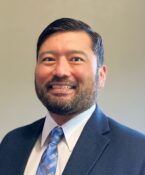Whole Health focus: mental health
- July 20, 2023
- By: Eric Griffey
- Our People
This article is part of a series highlighting whole health initiatives on HSC’s campus.
 When a patient is diagnosed with a life-altering chronic illness, that person’s emotional state can plummet. Roughly 37 million Americans have diabetes, for example, and they are two to three times more likely to develop depression than people without the disease. If left untreated, the compound effect of illness and depression can lead to poor self-care, excess disability and increased mortality. The same is true in reverse — poor mental health can spiral into physical illness.
When a patient is diagnosed with a life-altering chronic illness, that person’s emotional state can plummet. Roughly 37 million Americans have diabetes, for example, and they are two to three times more likely to develop depression than people without the disease. If left untreated, the compound effect of illness and depression can lead to poor self-care, excess disability and increased mortality. The same is true in reverse — poor mental health can spiral into physical illness.
Mental health is the body’s hub and spoke system that permeates every dimension of a person’s well-being. One of the core principles of Whole Health, a recently launched initiative at The University of North Texas Health Science Center at Fort Worth, is to treat the whole person, not disparate symptoms.
That big-picture view of health also considers a patient’s environment, financial well-being, spirituality and more.
Conchita Andrijeski, a behavioral health counselor for HSC’s Behavioral Health — a department within HSC Health, the university’s patient-facing clinic — works at the frontline of the intersection between mental and physical health. Part of her job is to collaborate with the primary health care team to help address a patient’s mental health.
“I introduce myself to patients as a member of their Whole Health care team,” she said. “I explain to them that we are interested in their Whole Health and want to be able to support all aspects of their overall care.”
In addition to educating the health care team, students and student doctors, Andrijeski reviews patient charts in search of symptoms or other factors that could be impacting their mental health.
“In Family Medicine, I can be found in the resident room listening for any mental health trigger words and offer strategies to address mental health needs,” she said. “Patients are offered an opportunity to talk with a mental health professional. This allows me to assess behavioral health needs, offer brief interventions and to administer behavioral health assessments.”
Mounting data from multiple sources confirms the need for a whole health approach. Studies show 80% of a person’s health is determined by factors other than access to quality care; eight in 10 doctors believe the U.S. cannot improve health outcomes or reduce costs without addressing the social drivers of health; only 8% of people above age 35 receive all of the high-priority, appropriate clinical preventive services recommended for them; one in five Americans worry about losing their housing, which leads to poorer health outcomes; and 14% of patients surveyed at HSC Health are experiencing food insecurity.
Andrijeski and her team are trying to close the gap that exists in the medical care field where the emotional dimension of a patient is often overlooked.
“I am working to help increase access to mental health counseling by being available within the HSC primary care practice,” she said. “This allows patients to address both their physical and mental health care in one familiar place. Practicing within the primary care clinic alongside the primary health care team promotes better coordination of care for a patient’s physical and emotional wellbeing.”
There are numerous signs that someone’s mental health is suffering, Andrijeski said. She recommended that anyone who needs help should ask their primary physician about different services that might be available.
“We might notice in ourselves that we are more irritable, having a hard time concentrating, avoiding our friends, struggling with sleep or sleeping too much or a change in our eating habits,” she said. “Don’t wait until you are failing your classes, worried you are going to get fired from your job, or you and your spouse aren’t talking. Get help when you are feeling off. Everyone can benefit from therapy.”





Social media